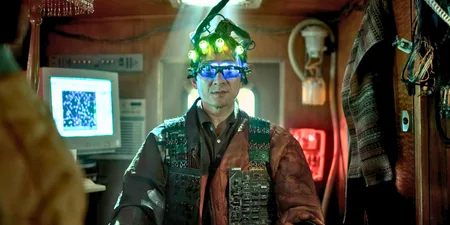The show should have had a swift strike to the head from Negan’s baseball bat a long time ago
After shuffling around aimlessly for several years like an undead corpse, The Walking Dead has finally been put to rest.
After a decade on-screen, AMC has announced that the upcoming eleventh season of the show will be the last (though the deluge of current and future spin-offs will continue).
And the general reaction from most people seemed to be “Wait, what, The Walking Dead is still going?!”
It wasn’t always like this. In the before time – in the early 2010s, to be precise – The Walking Dead was a show everyone was talking about. The pilot episode, directed by Frank Darabont of The Shawshank Redemption fame, was better than most zombie movies released in cinemas. Andrew Lincoln went from that bloke in Teachers to a genuine US star.
And it wasn’t one of those shows that burnt out after its first season, either. Perhaps the show’s most memorable characters, the likes of Michonne, Negan, and The Governor, wouldn’t come until later. Side characters like Daryl and Merle grew into series regulars. Even as late as 2016, Negan swinging about his baseball bat was relevant enough to be parodied by Dave Chappelle on SNL.
But then it just went on. And on, and on, and on, and on. And no one talks about The Walking Dead anymore. The show was one of AMC’s trio of heavy hitters, alongside Breaking Bad and Mad Men, that established the network as a competitor to HBO.
But people continue to discover those shows, and discuss the fates of Don Draper and Walter White. The Walking Dead was once spoken about in the same breath as those two shows. But now it is hard to imagine The Walking Dead being a show that people demand their friends catch up with so they can talk about it.
A few decades ago, in a different era of television, this would have been a sound approach. Back then, the main afterlife for television shows was syndication – endless repeats on late-night cable channels, where it would make sense to have as many episodes as possible to cycle through for the rest of eternity.
But now television dramas live on like novels, on streaming platforms. They are expected to be complete sagas, with a definitive ending – even if people end up hating those endings like Game of Thrones.
Traditional sitcoms, with their one-episode storylines, can get away with it. But not prestige dramas.
To be fair, writer of the original comic Robert Kirkman always intended The Walking Dead to be a series with no end in sight, that could potentially continue forever (the comic actually came to a surprise ending last year when he ran out of ideas).
And not everything can be The Office, the gold standard for wrapping up a show: do fourteen episodes, and get out of there with a brilliant ending (and even then Ricky Gervais had to go and spoil it with that god-awful film).
The Walking Dead isn’t going anywhere. The first spin-off Fear The Walking Dead returns this year. A second spin-off with a YA vibe, World Beyond, is also on its way.
On top of that, it has been announced that a third spin-off following Daryl (Norman Reedus) and Carol (Melissa McBride) will air in 2023. And AMC are also developing an anthology show set in the world of The Walking Dead.
Most of those shows will probably be good. Maybe some of them will be great. But it really feels like the legacy of The Walking Dead has been tarnished for refusing to die with dignity.










































